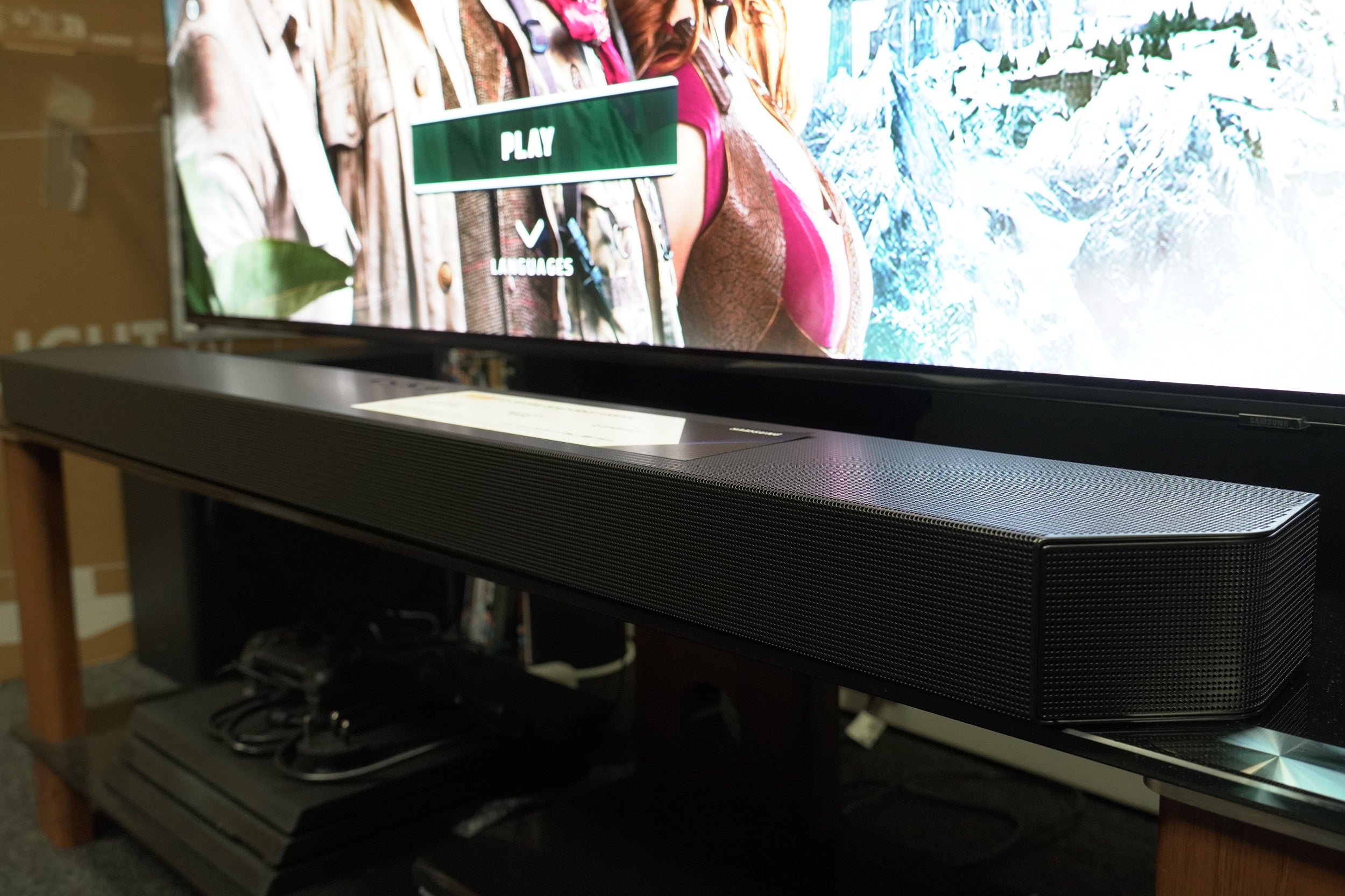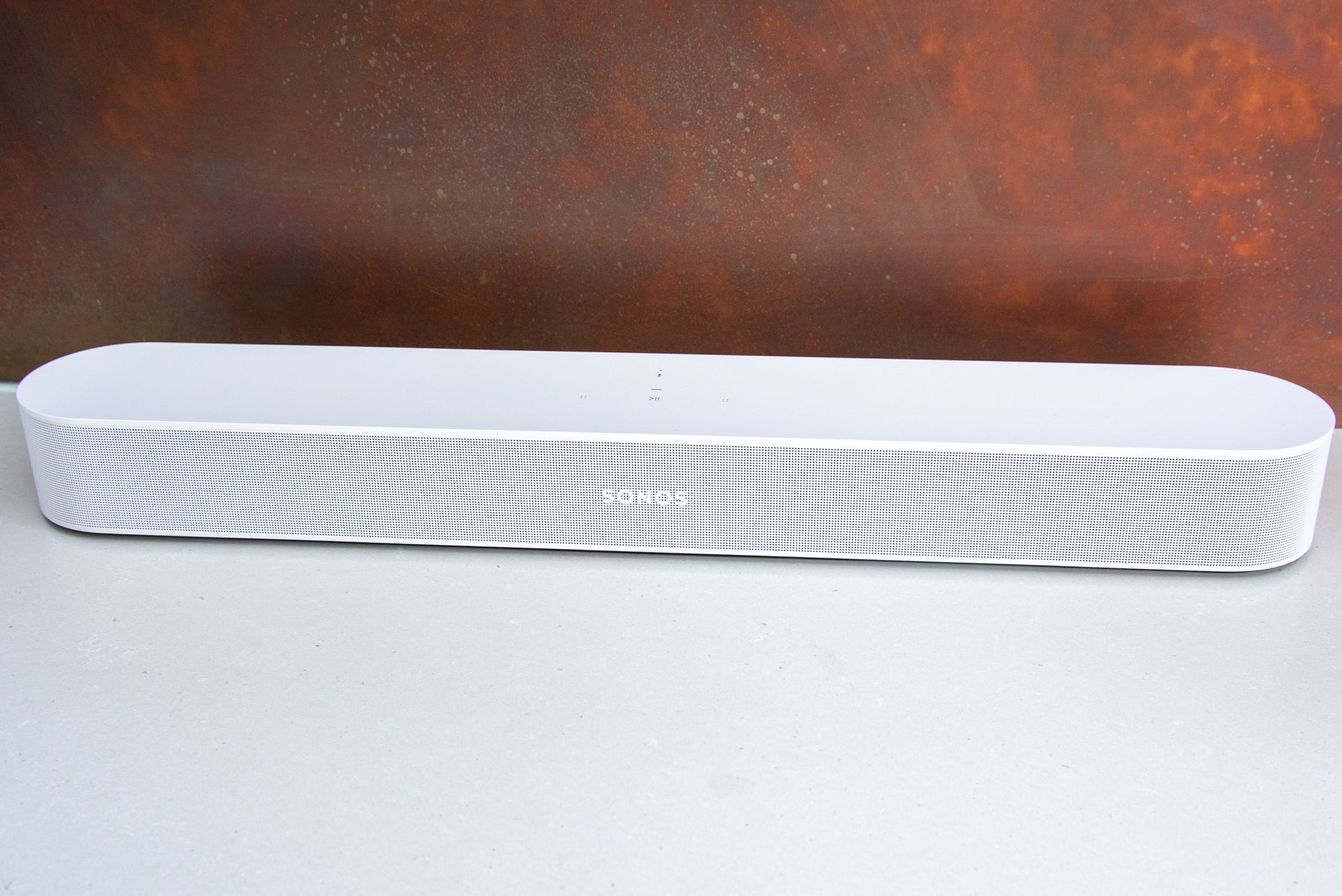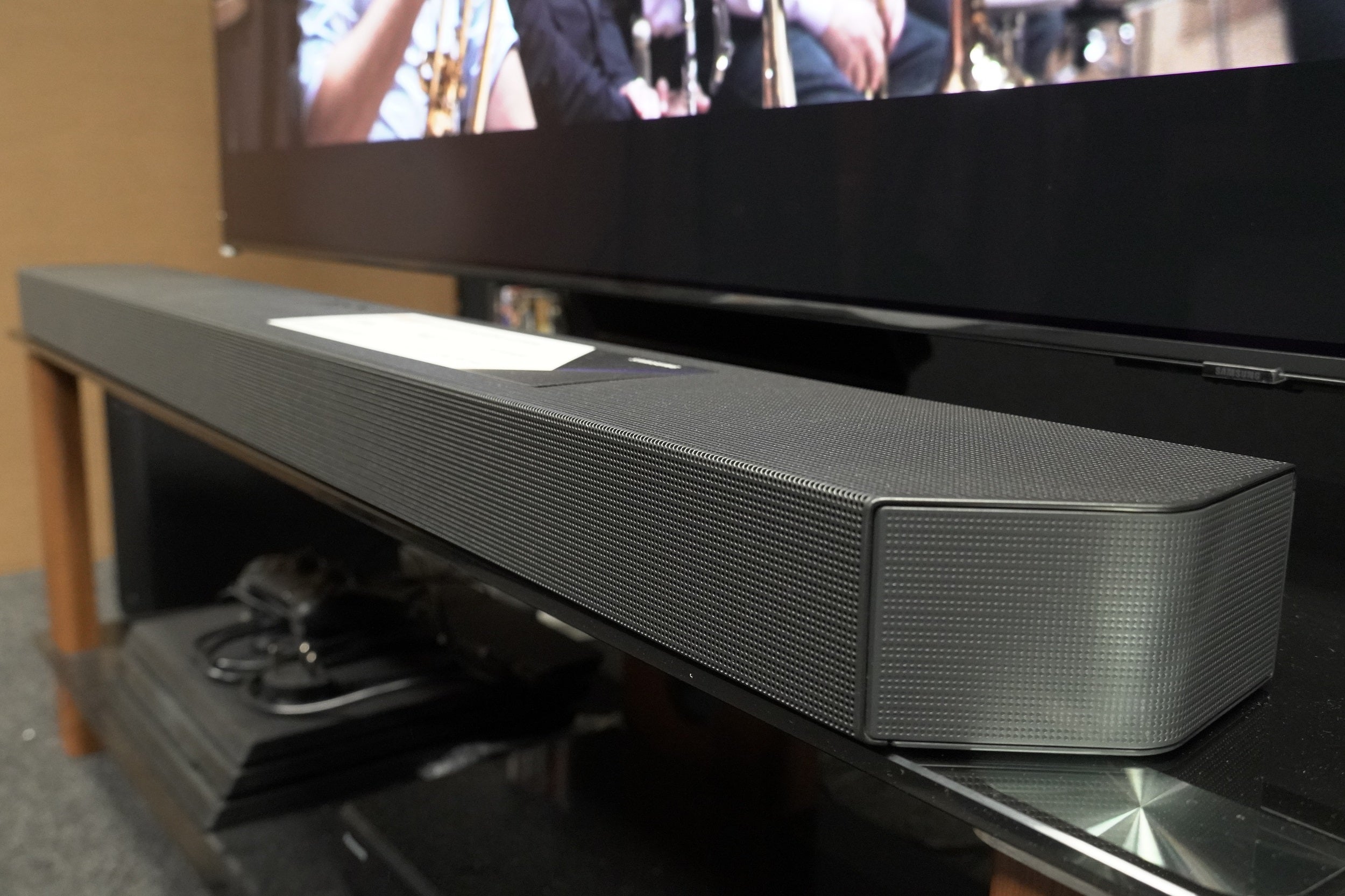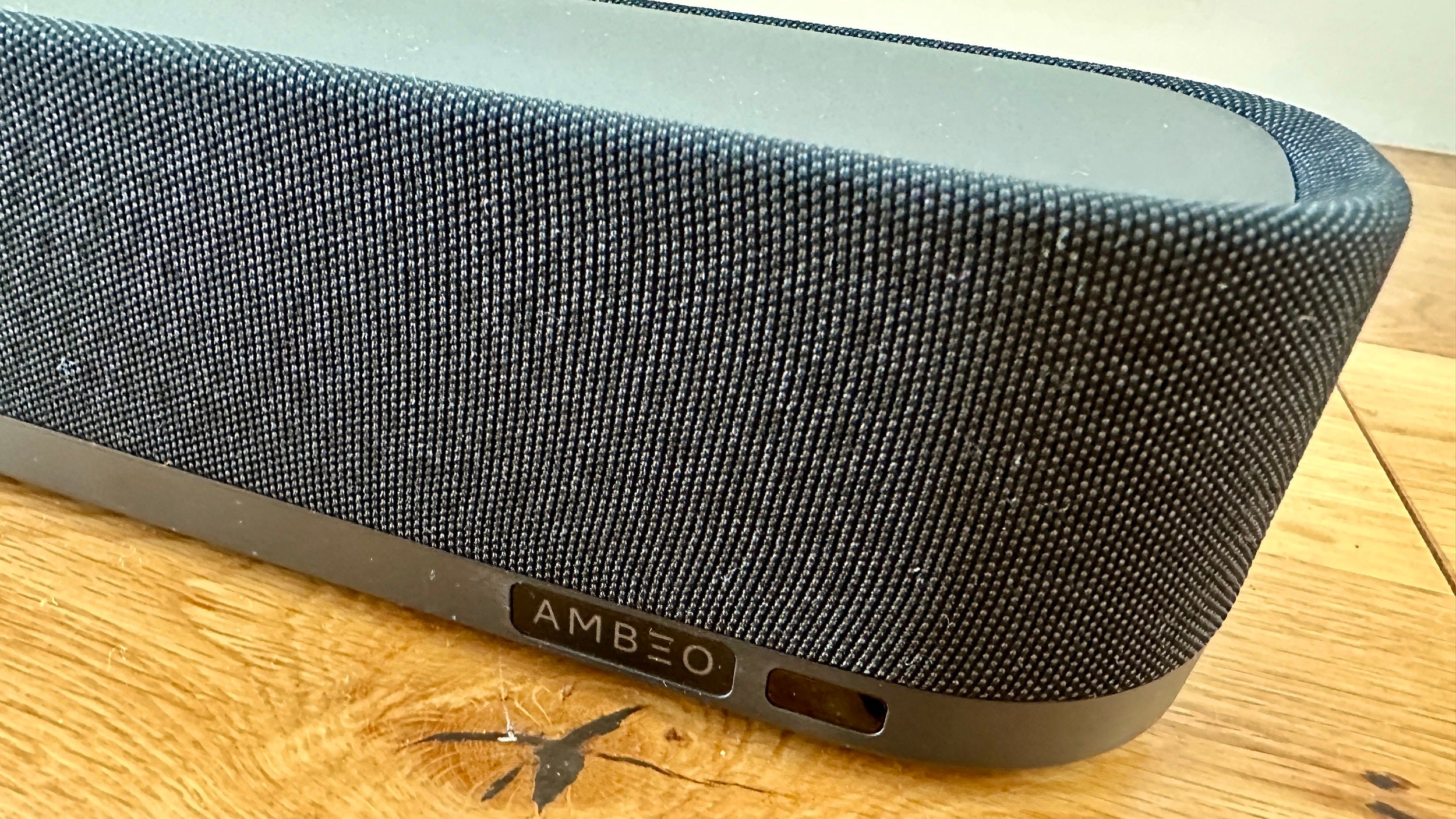Sony HT-A7000 Review
Sony's flagship bar aims to do pretty much anything and everything
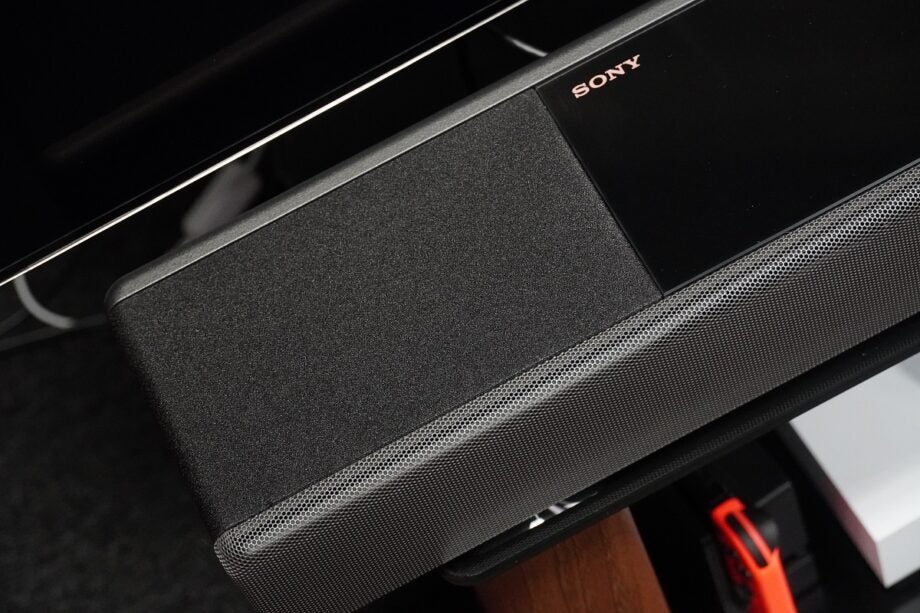

Verdict
A terrific performance across a range of sources, the Sony HT-A7000 is a sonic delight with movie and music
Pros
- Well-featured
- Excellent sonic performance
- Strong bass for a single bar
- Terrific music performance
Cons
- Needs plenty of space
- Adding subwoofer and rear channels is expensive
- Standalone bar is pricey
Availability
- UKRRP: £1199
- USARRP: $1299
- EuropeRRP: €1300
- CanadaRRP: CA$1699
- AustraliaRRP: AU$1699
Key Features
- Sound Field OptimizationMeasures width and height of room to optimise soundbar’s acoustic delivery
- S-Force PRO Front Surround and Vertical Surround EngineCombine to create virtual overhead and surround-sound performance from a single bar
Introduction
It’s been a while since Sony’s last flagship soundbar, and given the revolving door that sees new bars arrive each year, it feels well overdue for a successor.
Like the previous model, the new flagship HT-A7000 can decode Dolby Atmos and DTS:X, but Sony is using a twinned approach to create height channels, deploying both physical upward-firing speakers and the digital processing of its Vertical Surround Engine. The HT-A7000 also brings a more appreciative ear to music playback, with Sony claiming improvements in that area.
And it’s absolutely packed to the gills with features. The HT-A7000 is a one-box soundbar that aims to everything you could feasibly want. The question is, does it?
Design
- Idiosyncratic design
- Needs plenty of space
- Excellent build quality
The HT-A7000’s sense of attire is, shall I say, eclectic. Using a combination of glass, felt, metal, and moulded plastic, Sony describes the approach as one of a common omnidirectional block concept. I have no idea what that means, but the results are… interesting.
Like a piece of art, you’ll stare at the A7000 before realising that it, at the very least, is a more interesting sight than the soundbars with a wraparound fabric from a Scandi boutique firm. I appreciate the glass top surface, which echoes the bar’s premium build and I like that it is a highly unusual material to use. In a dark room it nicely reflects what’s on the screen but some may not like the effect.
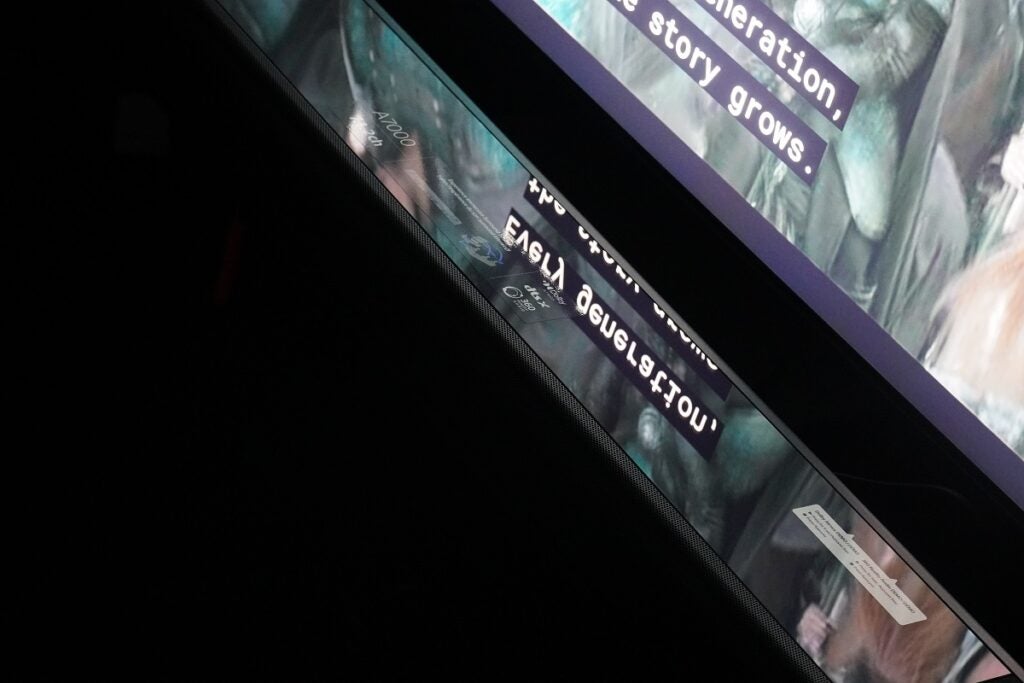
The HT-A7000 is also a lot of soundbar. At 80mm tall it’ll fit beneath TVs but at 1300mm wide and 142mm deep, in modern parlance this soundbar might be described as ‘thicc’.
Behind the perforated grille you can spy the drivers, and there’s some nerdish excitement when they start moving. There’s an appropriately sized and readable LED screen for tracking inputs and formats, and at either end are bass ports.
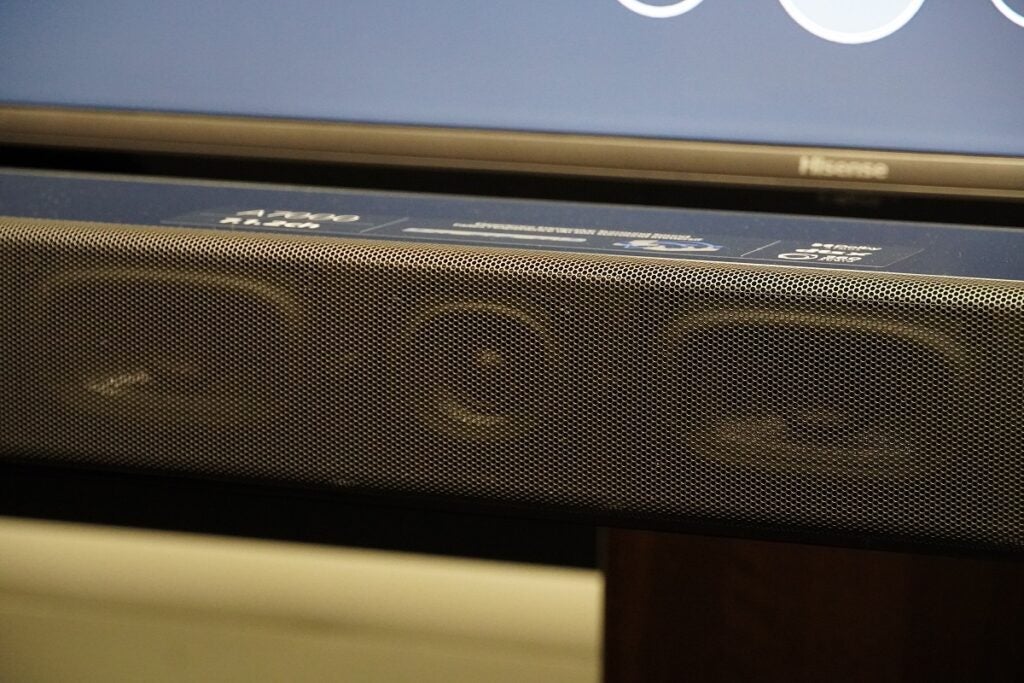
On the glass surface are touch controls (power, source, Bluetooth, volume, and a 360 Reality Audio demo), although you risk getting your greasy mitts over it and spoiling the aesthetics. Around the rear are the connections, and the way they’re labelled did take me a few seconds to figure out which HDMI port is which.
The remote lacks backlit buttons but the layout is excellent. Button presses are responsive and feel good, and you can’t ask for much more than that.
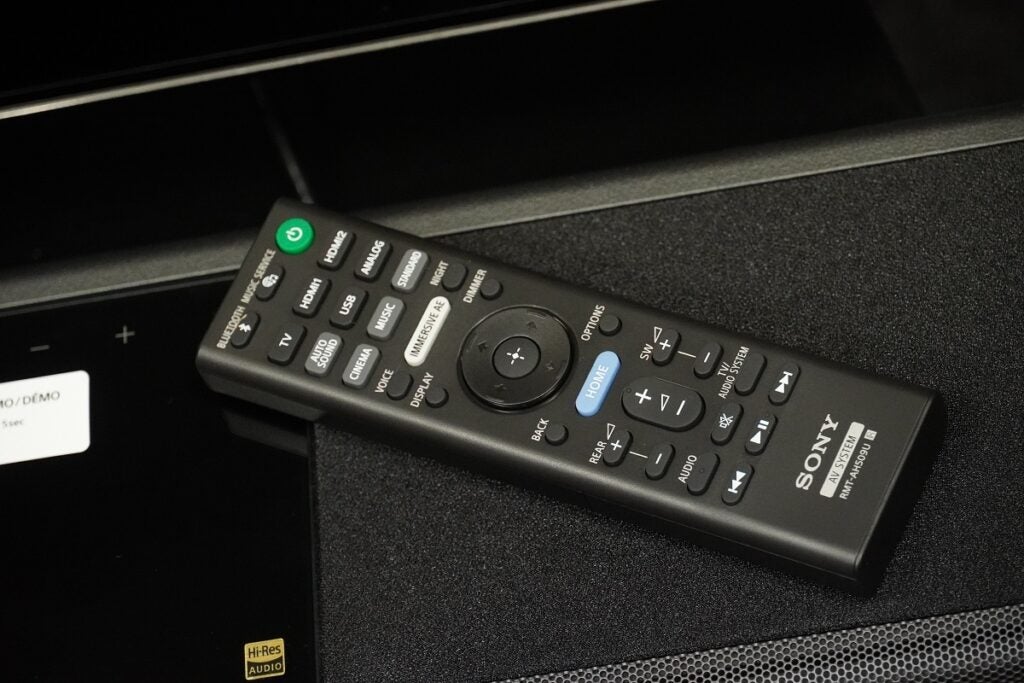
Features
- Plenty of ways to stream audio
- Built-in calibration
- Full-screen user interface
As you’d expect for a soundbar north of £1000, the HT-A7000 is bursting at its seams with features. If there’s a way of playing audio, the A7000 conceivably has the means to do so.
There’s built-in Chromecast, AirPlay 2, Spotify Connect and Bluetooth 5.0, with Sony’s own high-quality LDAC codec upping the Bluetooth bandwidth. Use the USB input and the A7000 can play everything from MP3 to DSD music files. Audio extends from Atmos (via Dolby Digital Plus or TrueHD), to various DTS incarnations (including DTS:X), all the way to legacy Dolby Digital and DTS formats.
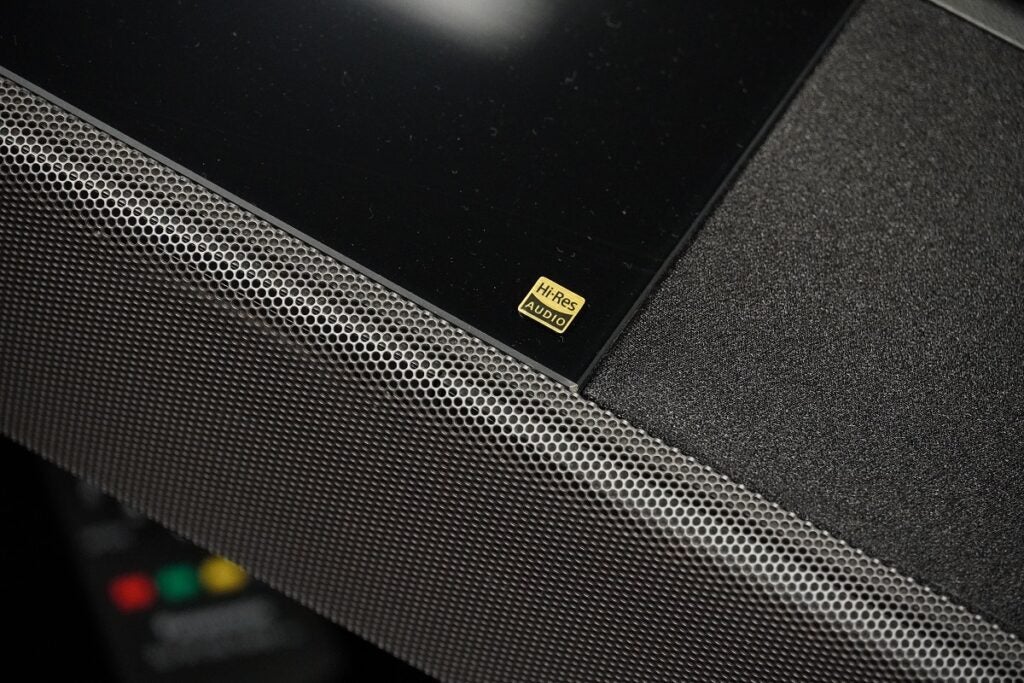
Both Sony’s Vertical Surround Engine and S-Force PRO Front Surround feature. The former creates overhead channels virtually, while the latter fires sound towards the listener to create the impression of wider, wrap-around soundfield.
This is further enhanced by the Sound Field Optimization feature, which emits a series of tones for the onboard microphones to measure the height and width of a room to optimise its performance. It’s worth running if you move the soundbar after initial set-up.
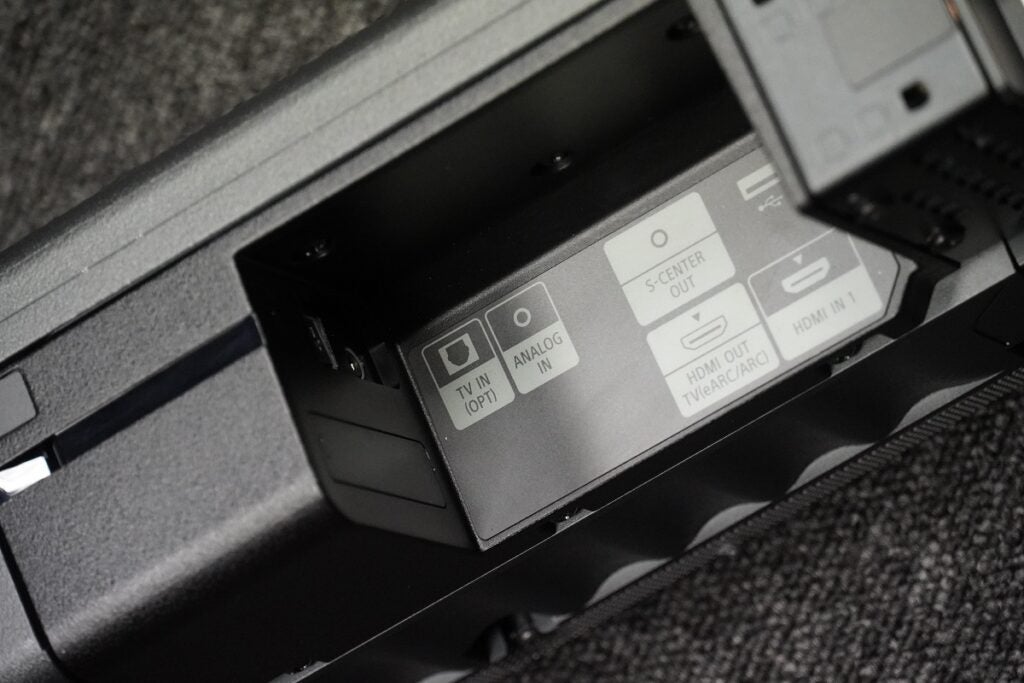
There are two HDMI inputs, a HDMI out (eARC) for a TV, an optical-audio, analogue (stereo mini), and USB inputs, with the two HDMI inputs able to passthrough Dolby Vision (at 4K/60), HLG and HDR10. For TVs without eARC, any Atmos signal will be the slightly less capable and lossy Dolby Digital Plus version.
The driver set-up consists of upfiring speakers, two beam tweeters to disperse sound out wide; along with five front speakers and a dual subwoofer configuration that uses Sony’s X-Balanced speaker technology, which claims to produce less distortion, better vocal clarity, and punchier bass. Altogether that’s a 7.1.2 layout powered by 500W.
With Sony’s DSEE Extreme and 360 Reality Audio, the soundbar can upscale compressed audio files in real time and play spatial audio tracks respectively. The Acoustic Centre Sync matches action and dialogue on screen with a compatible Bravia TV, and there’s an integrated user interface when paired with a Bravia TV.
A firmware update in January 2022 added 360 Spatial Sound Mapping capabilities that uses the Sound Field Optimization technology and the bar’s microphones to measure the height and position of the soundbar and any connected rear speakers. It then synthesises the performance based on the positional information, filling the room with sound. This feature is supported by the SA-RS3S wireless rear speakers and will be joined by the SA-RS5 wireless rear speakers when that launches in June 2022.
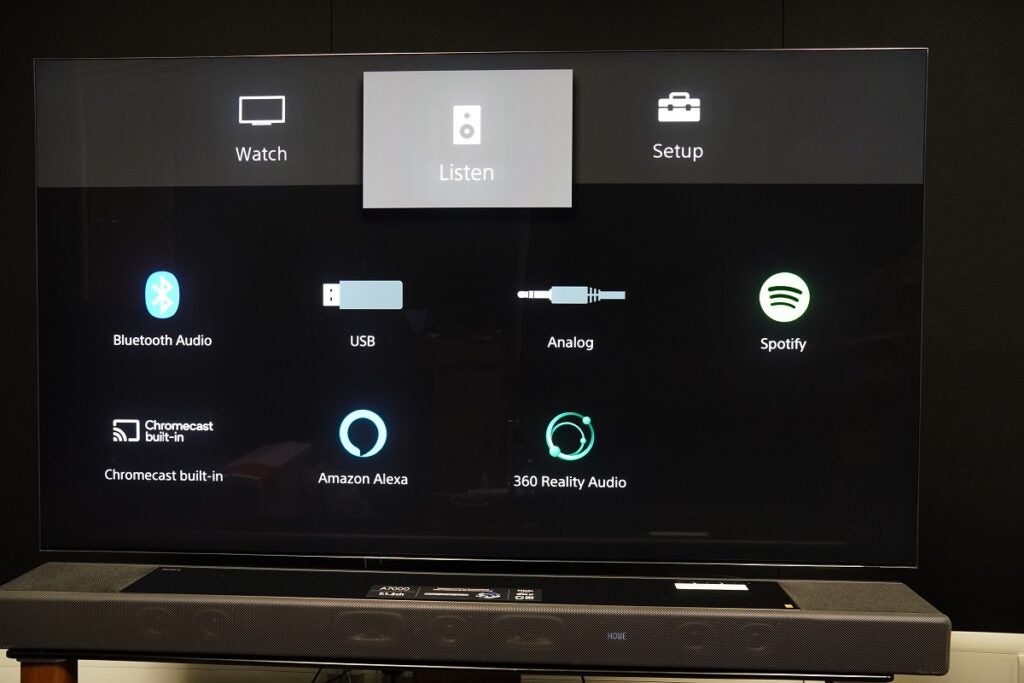
One prickly issue I had with Sony’s HT-G700 was its dense menu system; navigation felt like the Seinfeld episode where Jerry and co. get lost in car park. The HT-A7000 opts for a full-screen interface (via the Home button) where you can set the bar up, switch inputs, connect to the network, and calibrate the speaker. Download the Sony Music Centre app and that’s another means of operation.
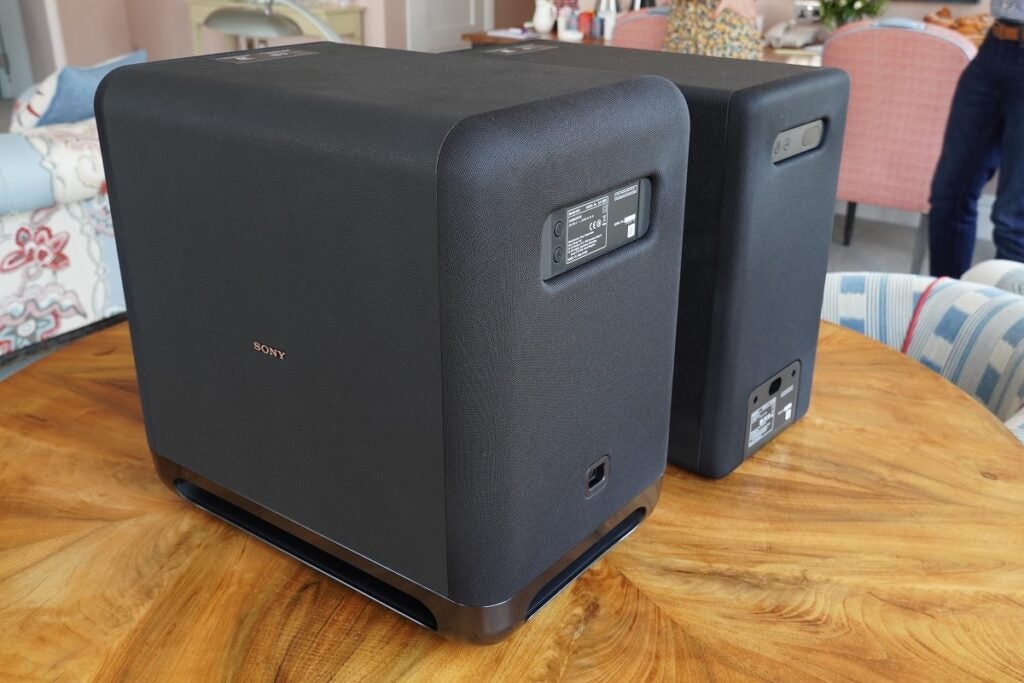
Sony offers two subwoofers in different sizes that can be added in conjunction to the A7000 – the 300W rated SA-SW5 and the smaller 200W SA-SW3, which cost £699 and £449 respectively. Throw in the SA-SR35 rear speakers (£449), and it’s over £2000 for the complete system, much more than the LG-SN11RG or Samsung’s competing efforts.
Amazon Alexa and Google Assistant are included, but they require an external speaker to take advantage of. Given how much the HT-A7000 does cram in, that is a surprise.
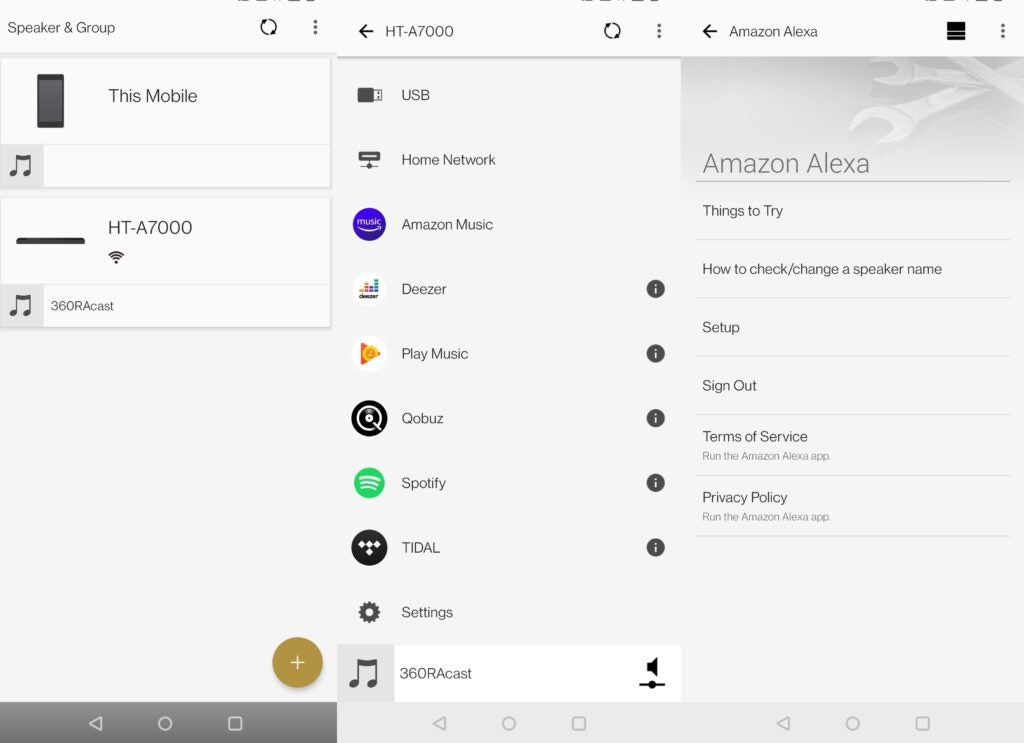
Sound quality
- Crisp, clear, concise performance
- Strong bass performance for a single bar
- Excellent music performance
The HT-A7000 plays Atmos and DTS:X soundtracks but can also up mix non-immersive audio to ‘3D’. The combination of the physical upfiring speakers and Vertical Sound Engine delivers one of the most convincing ‘height’ performances I’ve heard from a soundbar in 2021.
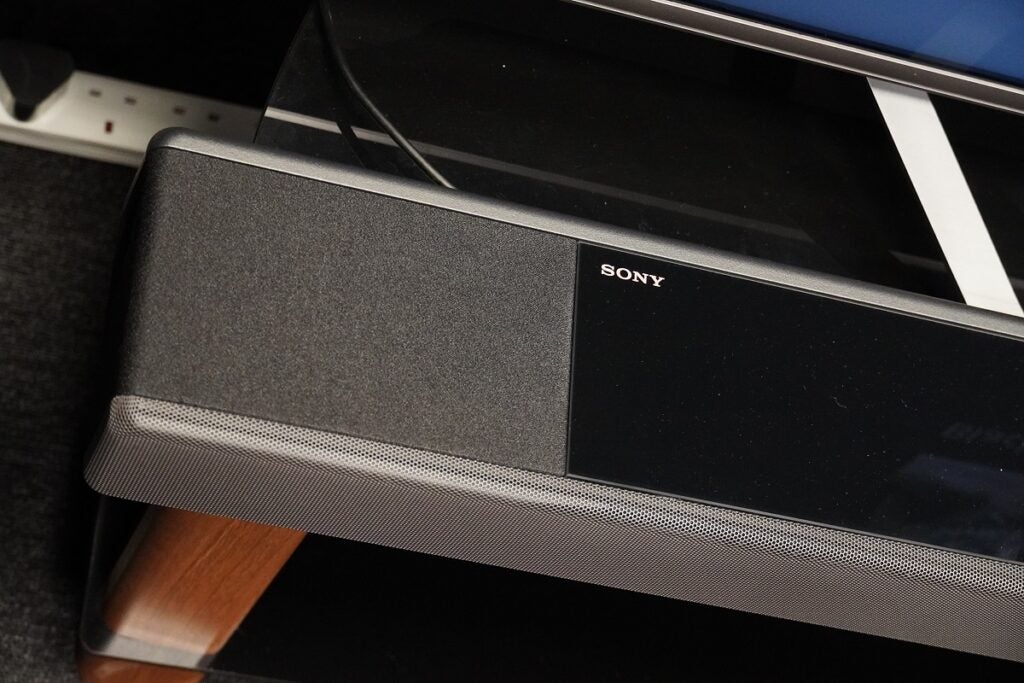
That notwithstanding, much like the HT-G700, I’m not as convinced of the HT-A7000’s claims of surround sound with its S-Force PRO technology. I didn’t often get the sense effects were directed to the listening position in what was, for me at least, a front-heavy soundstage. I feel the Samsung HW-Q900A produces more width with some films although the Sony maps sounds superbly onto a screen.
Where Sony bests its Samsung counterpart is in the heights, digging out more clarity and definition. Height effects in the first race sequence from Ready Player One are articulated better, the T-Rex and King Kong have a stronger presence as they swoop into the action with effective handovers between the drivers.
Tonally the Sony is sharp and crisp, avoiding sounding processed or strident with high frequencies or sibilant with voices. Dialogue is crisply delivered in Guardians of the Galaxy vol.2, with a distinct difference between Quill’s voice, Drax’s baritone and Gamora’s exasperation. Vocal clarity is well handled, although delivery can a lack some emotion, the crispness overrides any sense of warmth.
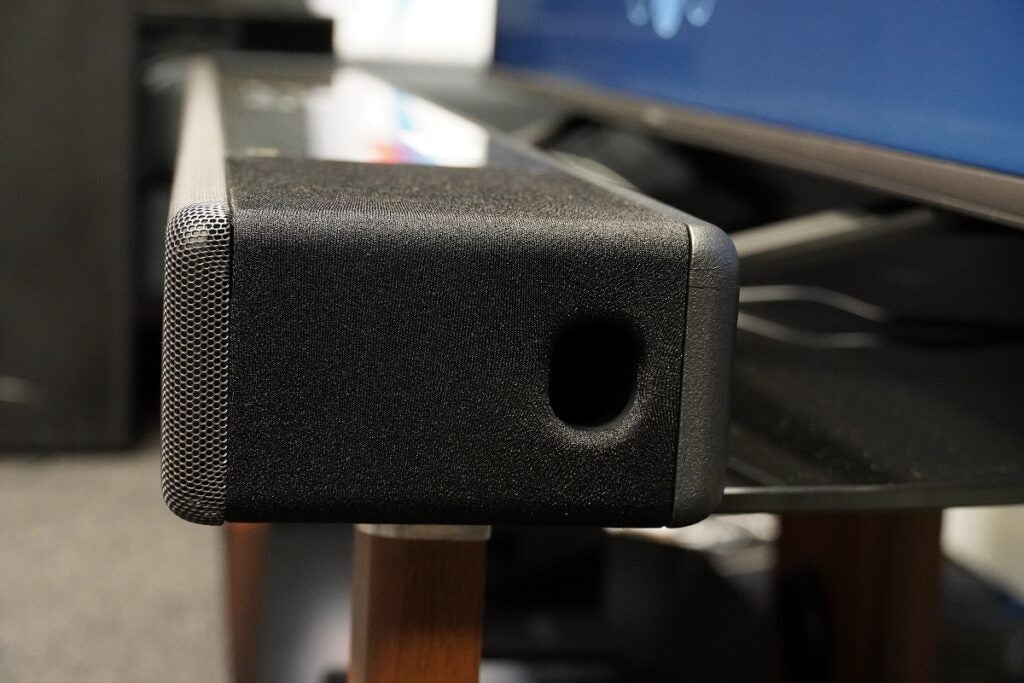
The chase sequence in vol.2 that leads to the Guardians’ Milano being wrecked makes an excellent case for the Sony’s accuracy in placing effects. The shifts in direction performed by the Milano stick to the screen like glue, as does dialogue and the direction of the laser blasts aimed at the ship. The balance of effects, dialogue, and music is handled expertly, the A7000 showing good sense of what to bring to fore for a clear and concise soundstage.
Bass impresses for a single bar system, noticeable in the absolutely crunching body shots Thanos lands on Hulk at the beginning of Infinity War. Bass doesn’t go as deep as a separate subwoofer could – but it is convincingly powerful, and explosive for a single bar system. Blade Runner 2049’s soundtrack invokes a little distortion, but the scene in V for Vendetta where V blows up the Old Bailey is pleasingly free it, and built-in sub doesn’t muck up clarity elsewhere in the frequency range.
More examples of its bass prowess come in opening siege of Tenet. The bass in Ludwig Göransson’s score has plenty of power, and the A7000 doesn’t strain to deliver gunshots and punches with force, resulting in a set-piece that’s both exhausting and exhilarating.
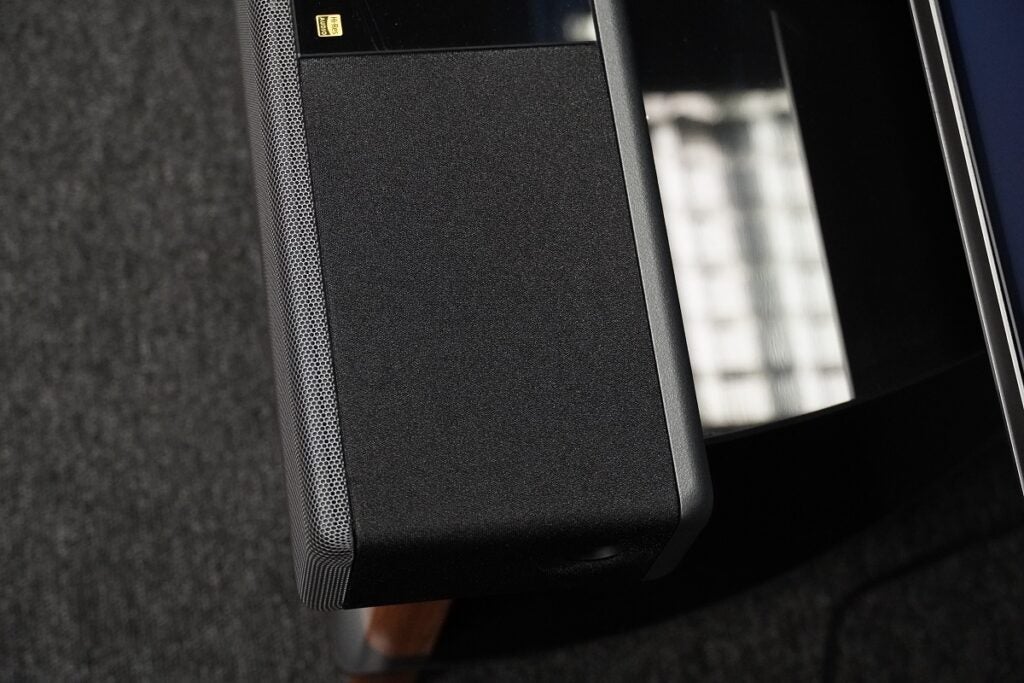
It’s also an impressively nuanced and revealing soundbar offering excellent levels of detail. The ‘reverse’ airport scene in Tenet sees the Sony preserve more subtle details like the sounds of the character’s breathing apparatus in among the chaos.
Similar is true with Darren Aronofsky’s mother!, the ambience of scenes brought to bear brilliantly. Effects I hadn’t noticed as much with other soundbars – the sounds of birds outside the house or the ‘noise’ of nature throughout – are brought through with excellent definition. The Sony is a soundbar that reveals every nook and cranny of that film’s excellent sound mix.
With Shutter Island (DTS-HD 5.1) and the A7000’s feel for quiet/loud moments is sharply conveyed, bringing impact, dynamism, and intensity to the soundtrack. In a way, the performance of the bar heightens engagement with the film, the emotional beats land more effectively.
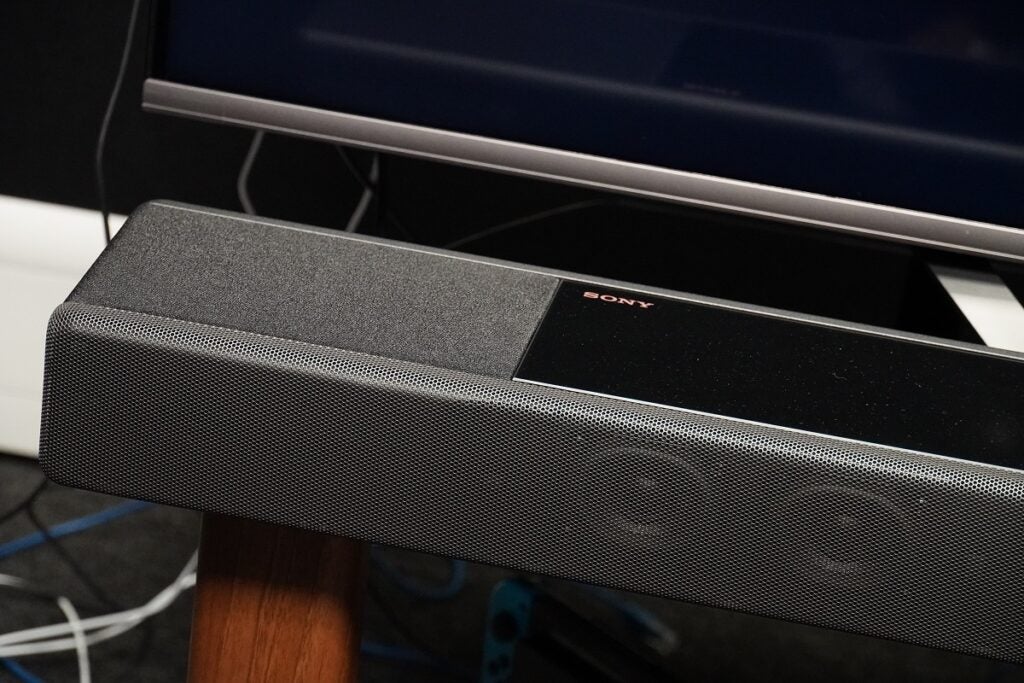
Switch to less explosive and non-immersive programming – The Trip Part II from series 4 of Seinfeld – and the Sony’s nous for dialogue placement in the mouths of characters again appeals – but the delivery still feels chilly. Even the laughter track feels thinly defined in Standard mode.
Over the air broadcast programming fares better with voices more smoothly relayed. High frequencies are sharply conveyed, the midrange roomy and bass effective. Watching Countdown is not a chore for this soundbar, but it’s a natural sounding presentation that doesn’t take you out of what you’re watching.
Musically, some tweaking is required. It’s initially bothersome that choosing another sound mode carries over previous settings. Listening to music over Spotify Connect in Music mode and Billy Joel’s We Didn’t Start the Fire sounded cluttered and thin. I’d left Immersive AE feature on (for upmixing to 3D), and dialogue boost, which led to a confusing performance.
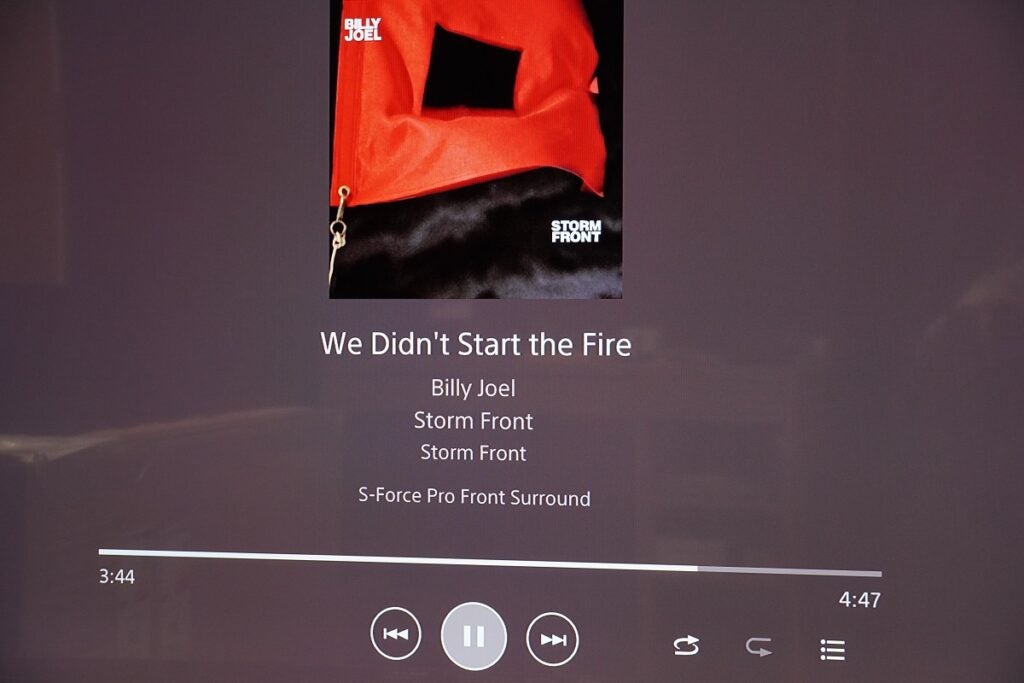
Music mode delivers a crisp and clean tone, but I don’t think it’s the best mode as it doesn’t quite derive as much emotion from vocals. Cinema mode is better as it applies a smoother tone, more warmth, and more bass, too.
Bill Withers’ The Same Love That Makes Me Laugh sounds superb. Wither’s voice is presented all the detail the A7000 can muster, while bass elements have weight and depth, with instruments impressively and naturally realised.
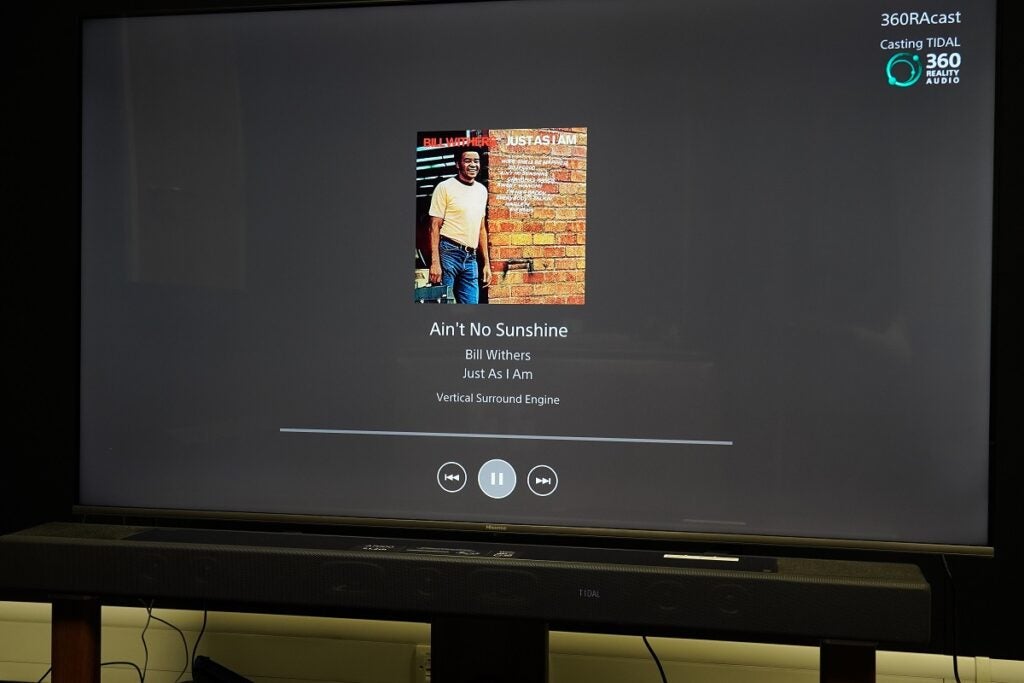
Moving to 360RA tracks and Ain’t No Sunshine benefits from more depth, though it sounds thin in places. Britney Spears’ Toxic gets a wider soundstage – as big as the soundbar itself – and there’s height as instruments are placed above the soundbar. Henry Mancini’s Dream a Little Dream of Me and For the Good Times both sound spacious with sport an enthusiastic sense of rhythm; with the Sony producing some sharp leading-edge clarity in its description of the piano notes.
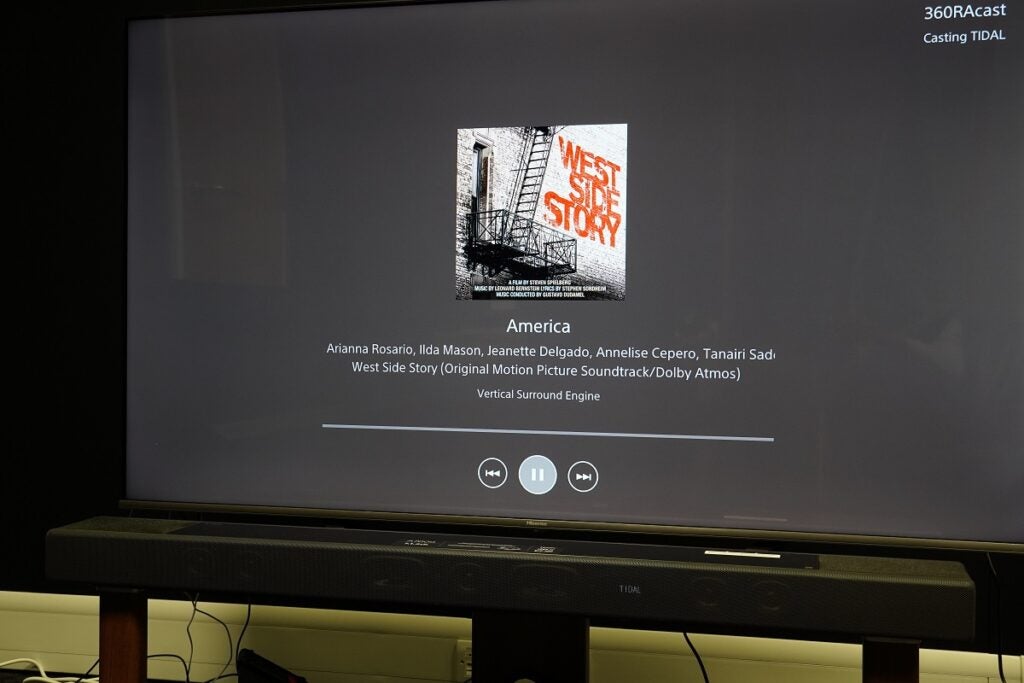
America from the new West Side Story in Atmos is a sprightly rendition, voices clear and shifts in tone delivered with dynamism and energy. Voices appear above, behind and to the sides of the soundbar but if you’re expecting a ‘tall’ performance, maybe check your expectations a little – it’s slightly bigger than the soundbar itself – and with the Immersive AE function on there’s a sweet spot to take into account. When it works though, it is terrific.
Overall, the music performance excels with excellent timing and tonality of instruments and voices, a natural delivery of the mid-range, and a sharp and assertive top end combined with a punchy low-end. Soundbars have rarely sounded this good with music.
Latest deals
Should you buy it?
An excellent single-bar with movies and music If a soundbar that’s as adept with movies as it is with music is on your shopping wish list, the Sony delivers on both fronts with an excellent and natural performance
If you’re not willing to pay that much for a single bar There’s no doubting the Sony puts in an authoritative performance, but the bar itself is expensive and if you have designs on adding a subwoofer or rear speakers, the overall price skyrockets
Final Thoughts
While calling the Sony HT-A7000 a ‘soundbar’ does describe its purpose, it’s also seems incapable of truly describing its talent. While not Sennheiser Ambeo levels of performance, it is a formidable for a one-box system at this price.
It does need space to operate though, its virtual surround sound ambitions perhaps require a more suitable environment to bring them out, and adding a subwoofer or rear speakers adds to the already premium cost.
Despite that, as single bar it has so much to offer, its performance across a range of sources is excellent. Its flexibility makes for a system that’s as good with movies as it is with music. Around its price, the Sony HT-A7000 is the immersive soundbar to beat.
How we test
We test every soundbar we review thoroughly over an extended period of time. We use industry standard tests to compare features properly. We’ll always tell you what we find. We never, ever, accept money to review a product.
Find out more about how we test in our ethics policy.
Tested over several weeks
Tested with a variety of content and audio formats
Tested with real world use
FAQs
No, it can only passthrough HDR10, HLG and Dolby Vision signals through its HDMI inputs.
At the moment the HT-A7000 doesn’t support ALLM or VRR. We are waiting on word as to when the soundbar will support it.

